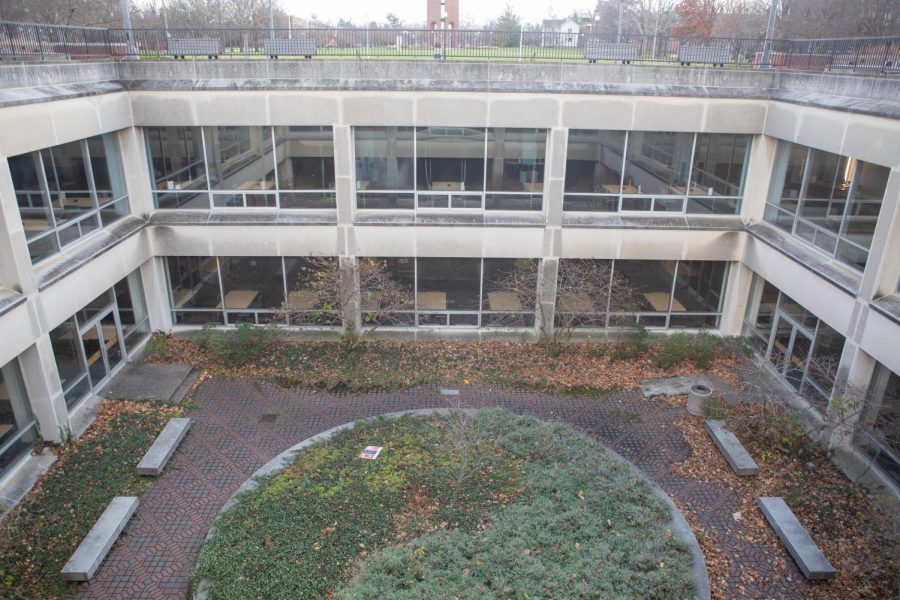Shuttered libraries stymie research for humanities professors
The Undergraduate Library rests empty on Sunday afternoon. Several University of Illinois libraries have either closed or reduced their operating hours due to the COVID-19 pandemic.
November 16, 2020
In a typical semester, Professor Robert Tierney prepares for lectures, grades papers and advises graduate students on their independent work. In winter and summer break, when students are away from school, Tierney puts his energy into researching.
This year, COVID-19 shuttering access to libraries has trampled on his progress.
Tierney works in the Department of East Asian Languages and Cultures; he’s writing a book about the translation of Western thinkers of democracy into the Japanese language.
According to Tierney, many professors tend to focus on teaching during the semester and research in the summer, but research in the past summer “was really not possible.”
“I work in East Asian Languages, and we rely on the library,” Tierney said. “This is the case with most people who work in fields like mine. We rely on the library, and the library is not functioning.”
Get The Daily Illini in your inbox!
Other professors in the humanities also find researching difficult in the pandemic.
“Normally I would go to film festivals twice a year, both of them in Italy,” said Lilya Kaganovsky, professor in the Department of Slavic Languages and Literatures. “I would go to archives in Russia. I would go to a number of conferences where I would interact with colleagues and hear presentations.”
According to Kaganovsky, some of the conferences she normally attends have been moved online, but it is a completely different experience. “You’re not gonna spend three days on an online conference going to all the panels,” Kaganovsky said.
According to Harriet Murav, professor in the Department of Slavic Languages and Literatures, the University’s collection of electronic books does not help her research as much as its physical counterparts.
“My research depends on access to the library,” Tierney said. “We actually need books.”
Researching in the sciences seems to be better off compared to their humanities counterparts.
According to Peter Abbamonte, Fox Family Professor in the Department of Engineering Physics, his research has been going well after a big transition at the beginning of the semester to comply with COVID-19 guidelines.
“Computational groups are better off because we can still continue doing our work even from our homes,” said Nikhil Admal, assistant professor in the Department of Mechanical Science and Engineering. “The challenge is how to keep your morale up.”
Regardless of the field of research, professors generally miss the in-person element of their work.
“It’s more fun and more productive when you’re interacting with people in the same room,” said Mark Bernhardt, professor in the Department of Economics. “When you’re in the same room, you can go to a blackboard and figure out math together. It’s fairly subtle.”







